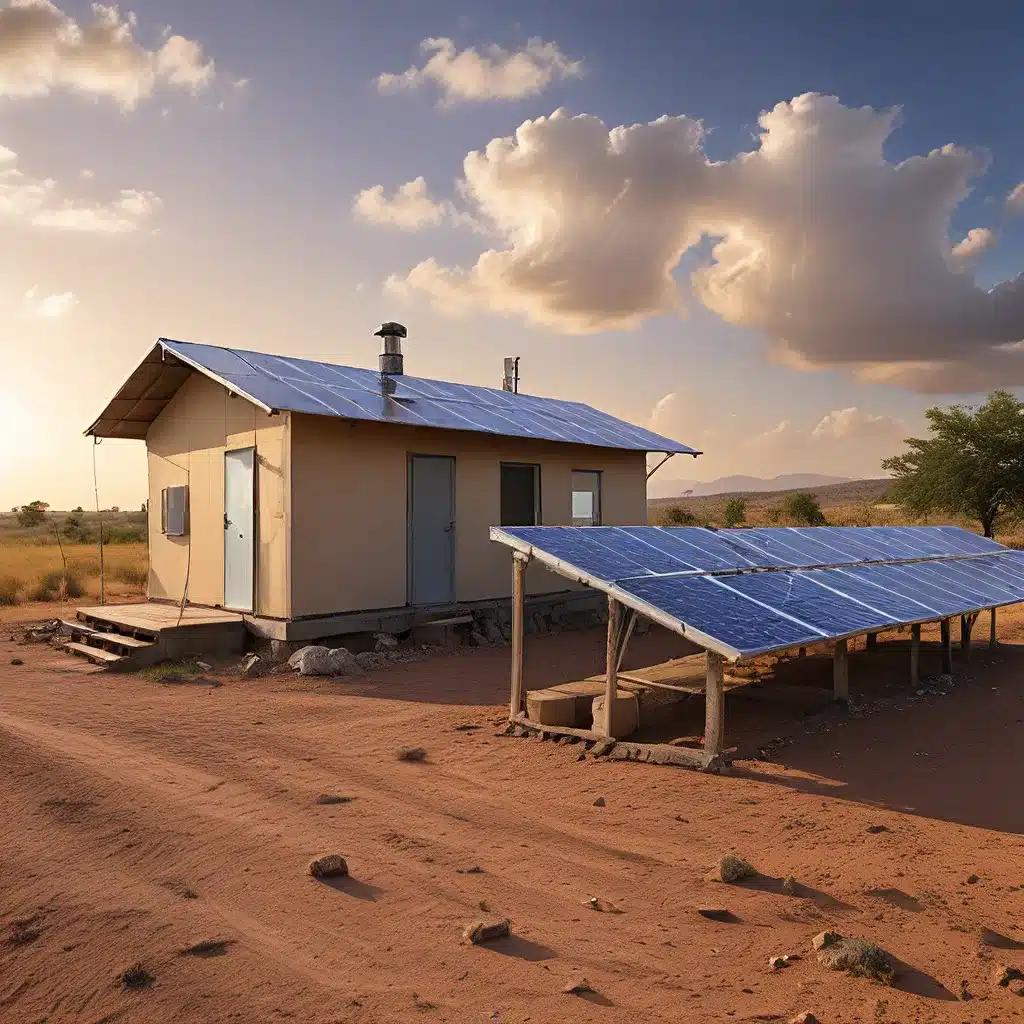
As we navigate the ever-evolving landscape of renewable energy solutions, one trend that has captured my attention is the remarkable potential of decentralized renewable energy systems to transform the lives of communities in remote and underserved regions. These innovative off-grid technologies are not just about powering homes and businesses – they’re about unlocking human potential, fostering gender equity, and building resilience against the intensifying impacts of climate change.
Bridging the Energy Divide
The stark reality is that despite the global community’s progress on the clean energy transition, millions of people around the world still lack access to electricity. This energy gap perpetuates disparities in critical areas like health, education, food security, and gender equality, particularly in vulnerable rural communities. As the Bezos Earth Fund report highlights, a staggering 70% of funding in countries lacking energy access still expands fossil fuel capacity rather than embracing clean energy solutions.
But what if I told you that the solution to this profound energy deficit lies in the very innovations that are redefining the way we think about renewable energy? Decentralized systems, such as mini-grids, off-grid solar, and more, have the potential to be game-changers in this fight for energy justice and inclusive development.
Decentralized Renewable Energy: A Transformative Approach
Decentralized renewable energy solutions are, by their very nature, more resilient in the face of climate shocks. Unlike centralized grid infrastructure, these distributed systems can continue to power communities even after severe storms or other extreme weather events that often lead to grid outages. This reliability ensures that essential services and communication can reach those who need it most, safeguarding communities against the devastating impacts of climate change.
But the benefits of decentralized renewables extend far beyond just energy access. These innovative solutions can also empower communities to develop locally-led adaptation strategies that build resilience to the changing climate. For instance, in Rangamati Hill, Bangladesh, a community installed a solar-powered tube well to pump, store, and distribute water to their homes – not only providing clean water, but also allowing them to irrigate the fruit orchards that they rely on for food and income.
Similarly, in Guanacaste, Costa Rica, a farm installed a windmill powered by clean energy to carry water to a reservoir, ensuring that their crops receive sufficient irrigation even during dry spells. These are the kinds of innovative, community-driven solutions that can truly transform lives and build resilience in the face of a changing climate.
Amplifying Impact: Integrating Adaptation and Mitigation
But the synergies between decentralized renewables and climate adaptation don’t stop there. In fact, clean energy technologies can be strategically deployed to deliver even more significant adaptation benefits. Take, for example, the concept of agrivoltaics, which combines farming and solar photovoltaic electricity production.
By installing solar panels several meters above the ground with gaps between the arrays, crops can be grown underneath, benefiting from the partial shade that protects them from intense heat and reduces water loss from the plants and soil. This innovative approach has been tested in countries like Kenya, Tanzania, and Uganda, where the results have been nothing short of remarkable – bigger, healthier cabbages, aubergines, lettuce, and maize.
In the Netherlands, agrivoltaic systems are even being tested on fruit crops that are typically cultivated with overhead protection, with the solar panels replacing the plastic arches used to shield the plants from rain, hail, and excessive heat.
These innovative approaches not only generate renewable energy, but also enhance climate adaptation by protecting crops and improving agricultural productivity – a truly ingenious integration of mitigation and adaptation strategies.
Investing in a Sustainable Future
As we look to the future, it’s clear that scaling up decentralized renewable energy solutions is not just an option, but an imperative. According to the International Renewable Energy Agency (IRENA), investing just $25 billion annually into distributed solar solutions can create over four million jobs each year, bridging energy access for roughly 400 million individuals in unelectrified regions by 2030.
Furthermore, RMI and IRENA analysis suggests that universal household electrification powered predominantly by decentralized renewables can potentially generate around 60 million full-time equivalent jobs by 2050, while massively improving socio-economic outcomes for marginalized communities.
The Firewinder team is committed to being at the forefront of this renewable energy revolution, leveraging our expertise to design and deploy innovative, decentralized solutions that not only provide reliable power but also empower communities to build their resilience against the impacts of climate change.
A Future of Energy Justice and Inclusive Development
As we reflect on the outcomes and promises from the recent United Nations COP28 climate negotiations, it’s clear that while progress has been made, we still have a long way to go to ensure that no community is left behind in the pursuit of energy justice and inclusive development.
By prioritizing decentralized renewable energy solutions, we can unlock human potential, foster gender equity, and build resilience in the face of a rapidly changing climate. It’s time to move beyond the traditional centralized grid infrastructure and embrace the transformative power of these innovative off-grid technologies.
I’m excited to see what the future holds as we continue to push the boundaries of renewable energy innovation and harness its potential to create a more equitable, sustainable, and resilient world. Who knows what other ingenious solutions are waiting to be discovered? The possibilities are endless, and I can’t wait to be a part of this journey.

